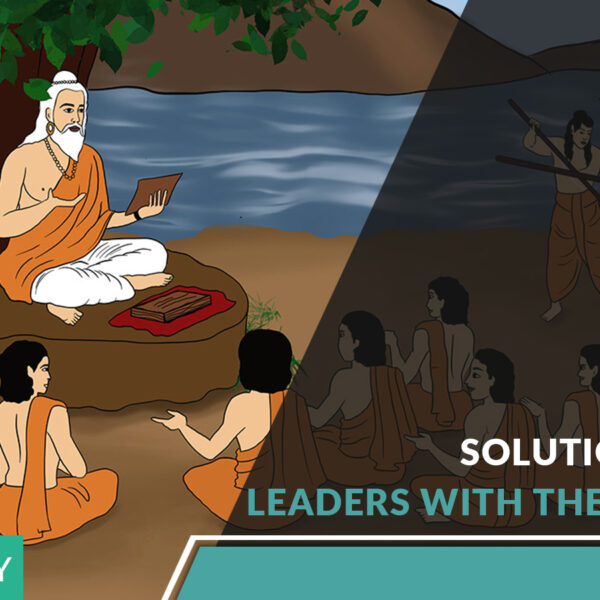“Education is the kindling of a flame, not the filling of a vessel.” Socrates believed that knowledge dissemination was meant to be a two-way street, it was meant to be collaborative, interactive, and learning is a lifelong adventure, not something that has an expiry date.
In the ancient gurukula system, which dates to many thousands of years ago, the students were taught multiple subjects with the aim to combat not just everyday problems but challenges that would emerge out of nowhere. The pedagogy aimed hard to instill discipline in the students and prepare them for lifelong leadership. The gurus and shishyas co-existed harmoniously in the residential gurukulas.
Fast forward to now, the world is changing as we write this note. Challenges that the young leaders face today are a testament to the fact every second today is unscripted and unpredictable. So, what kind of education does the learner of today need?
A learning system that allows us to rewind and explore the teaching gifted to us by our ancestors from generations ago rings a bell.
Indian Knowledge System (IKS) has found its way to the curriculum of higher education in India and there are many ways by which this traditional knowledge can be used to combat contemporary issues plaguing the world.
Amalgamation into the Pedagogy
The National Education Policy (NEP) 2020 emphasized strongly the Indian Knowledge System (IKS) across the spectrum of knowledge dissemination.
University Grants Commissions (UGC) recently proposed that IKS find its way into the Indian higher education system. The potential of this knowledge is undeniable and, in a world, where transdisciplinary learning is the need of the hour, ancient knowledge which crisscrossed various streams and subjects can be a catalyst for further research and learning. UGC recently made the study of ancient astronomy, mythology, Vedas and Puranas, Vedic Mathematics, and more, a part of the credit-based curriculum.
Higher education institutions have been asked to amalgamate IKS into their pedagogical approaches as well. Credits will be considered for any of the 18 major vidyas, and 64 kalas, applied sciences, vocation disciplines, theoretical disciplines, and crafts. For four-year undergraduate courses, a foundational course can be taken that aligns with IKS. The system also truly allows for interdisciplinary learning, as a student of Mathematics could pick a course in History or Literature and so on, breaking silos that we are so used to in the world of education.
Faculty are a huge limb in the learning culture, bringing together theory and practice into the classrooms. To observe, understand and analyze the NEP 2020 and integrated IKS into the system of things, a Faculty Training Programme for 1000 faculty across the country has also been announced.
Advantages of IKS
Knowledge is meant to transcend the classroom. It is about the disciplines of study, yes, but it is also about learning diversity, equity, inclusivity, and holding ethics high in a world that needs it more than ever before. IKS does not just teach about numbers, geometry, surgery, metallurgy, ancient astronomy, architecture and so much more, it also brings in an understanding of heritage, culture, civilization, and society at large.
While one learns fractions, one also indulges in language, music, and arts, leading to holistic all-around development, which will eventually aid in finding solutions to problems better.
History is a peek into how we became, who we became, and how we can be better. E.g.- From ancient and medieval Indian town planning and architecture, there are lessons that can seep into our urban planning. There is so much to unearth through the knowledge that was created centuries ago for us.
The Right Way
For years now, nations around the world have leaned into Indian history and manuscripts of knowledge to be added to their academic curriculums. While in India it may be relatively new, it is also important that the amalgamation of IKS into the pedagogical ways of universities and schools finds the right execution. While this traditional knowledge is powerful, we also need to be cognizant that the world has transformed from the time much of this knowledge was created and to be able to adapt it to the current scenarios without any political agendas will be a challenge. What we need to strive for is a fair execution of the policies to benefit the learners and to create a more robust name for India against the landscape of global education.

